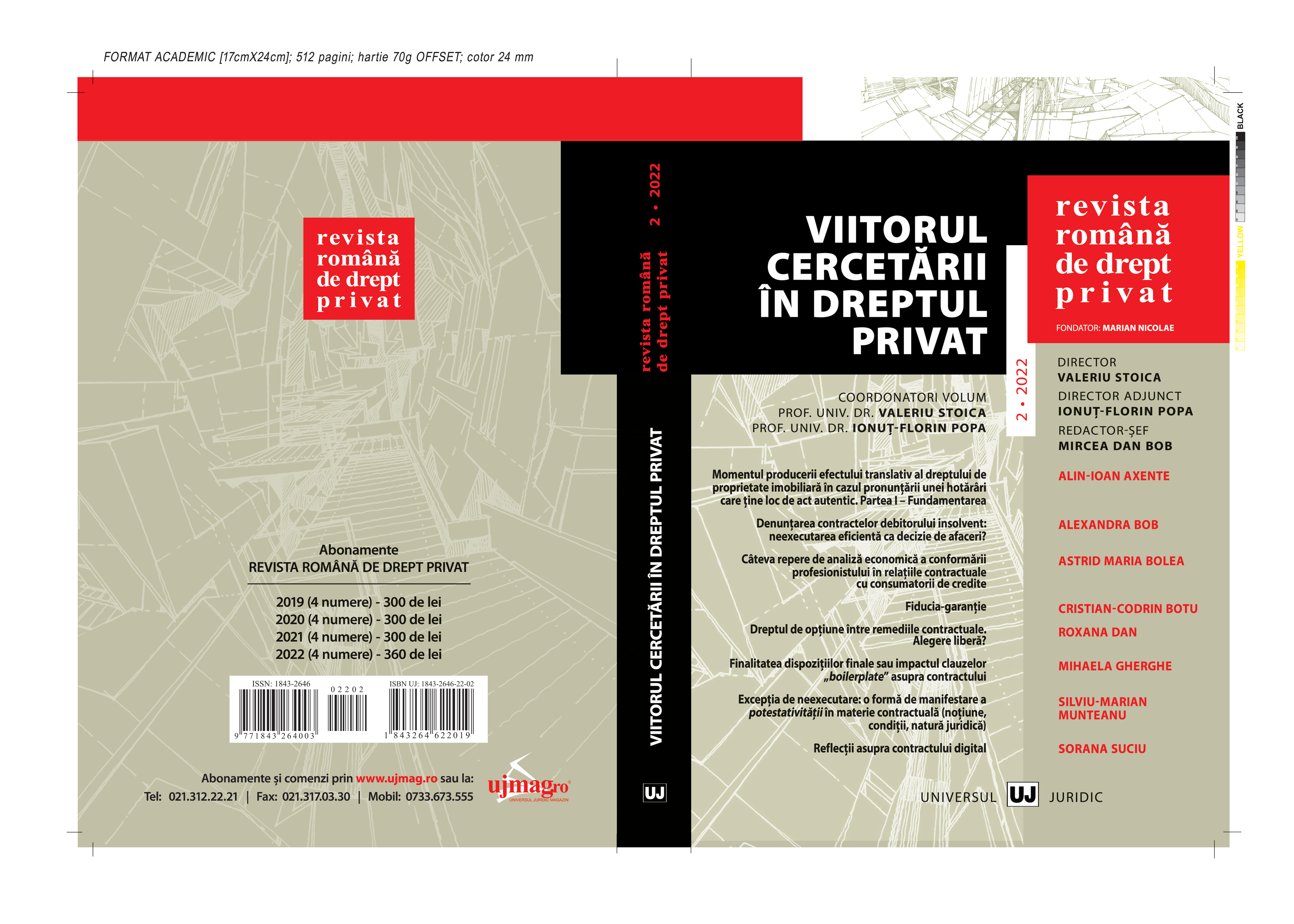Mandatarul fără reprezentare – un potentior căzut în dizgraţie
The non-representative agent – a disgraced potentior
Author(s): Dragoş Nicuşor PetrescuSubject(s): Law, Constitution, Jurisprudence, Civil Law
Published by: Universul Juridic
Keywords: simulation; prête-nom; mandate; special power; representation;
Summary/Abstract: This study aims to provide a different perspective on a long-debated issue in civil law, the qualification of agency without representation as a simulation hypothesis. The analysis includes a comprehensive exposition of the main efforts devoted to the institution of simulation in general, its species, conventional and unilateral simulation, but also subjective relative simulation with its forms-fictitious interposition and mandate without representation, together with the notion of special power of and without representation. The concept of special power is strongly claiming its place among legal prerogatives, alongside the civil subjective right and special freedoms, given the isolated doctrinal treatments. The contract of mandate without representation is one of the sources of the prerogatives of special power without representation. The comparative treatment of the specific features of simulation and (proxy) power reveals the impossibility of qualifying the mandate with and without representation as a form of simulation. At the same time, the specific characteristics of the mandate without representation that can be inferred from its regulation in the Civil Code today are easily explained by the recognition of the effects of the prerogatives of special power arising from this contract. Thus, the immediate cause of the contract, the impossibility of confusing the simulatory agreement with the effects of the contract of agency without representation, the absence of a genuine hidden nature of the contract in the sense of an act of secrecy, the effects of the action for a declaration of simulation, the absence of a direct legal relationship between the third party and the principal justified by the absence of representation and not by the hidden nature of the agency are, among other things, arguments in support of the impossibility of classifying the agency without representation as a hypothesis of subjective relative simulation.
Journal: Revista Română de Drept Privat
- Issue Year: 2022
- Issue No: 02
- Page Range: 426-466
- Page Count: 41
- Language: Romanian
- Content File-PDF

